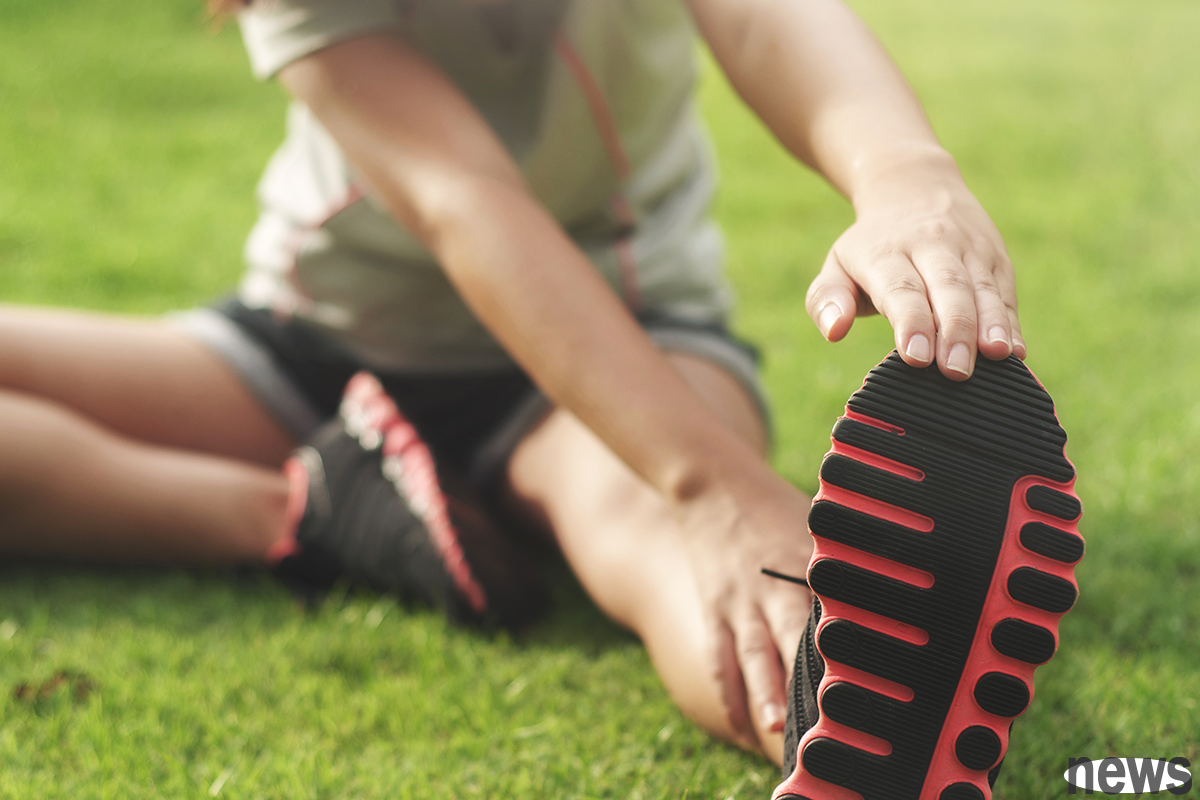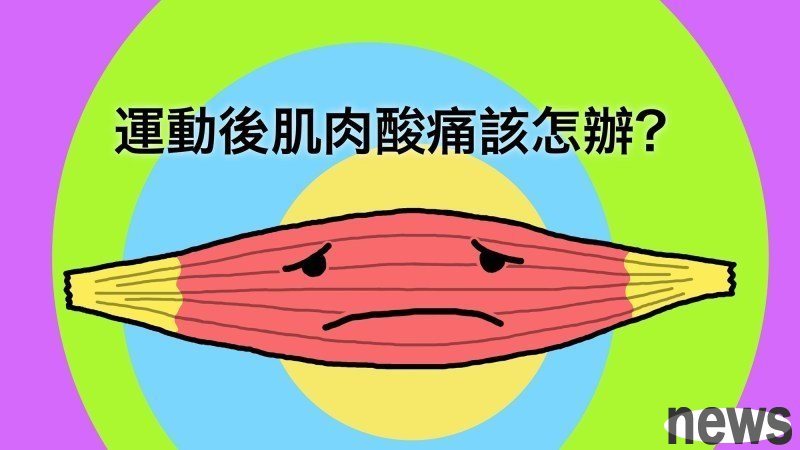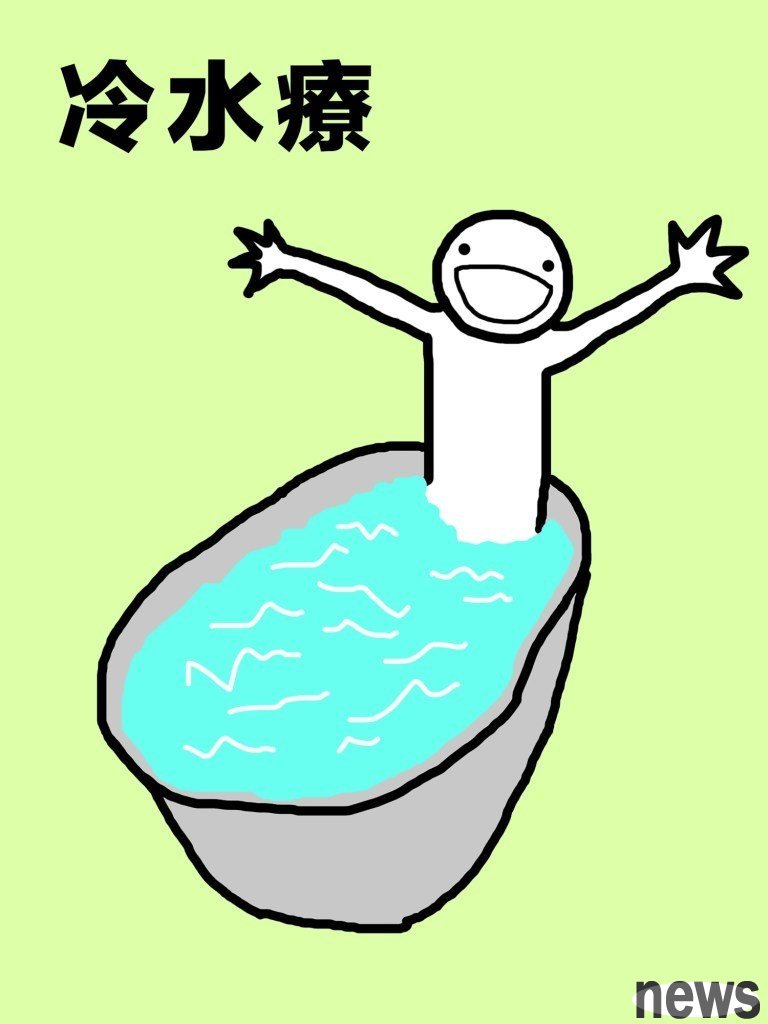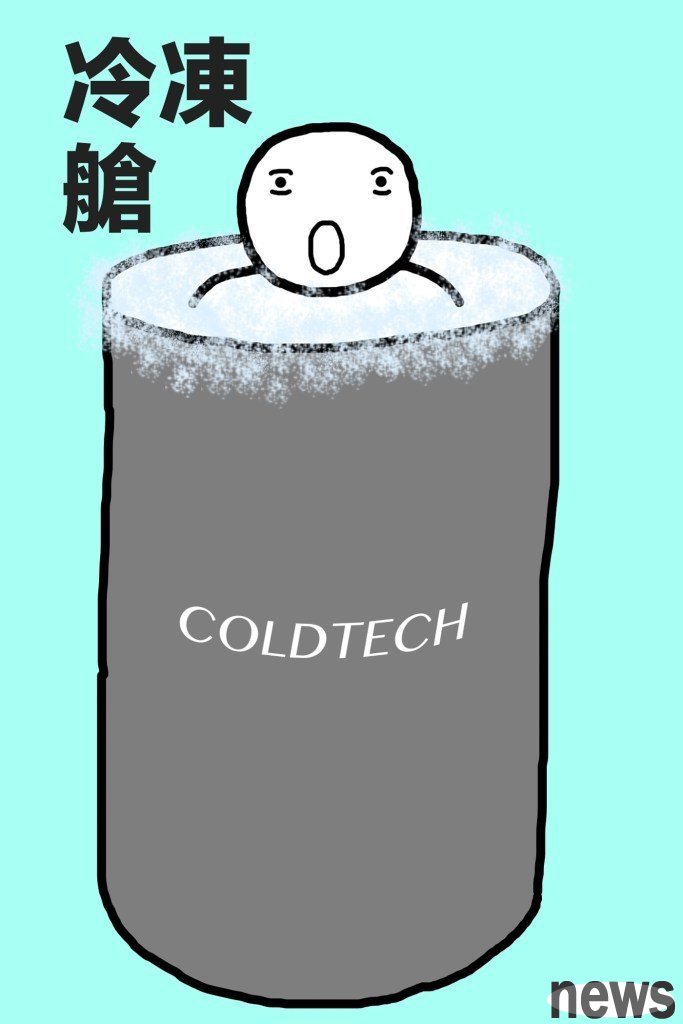Co-written: So painful (fan page link) Ding Zhenghao Sports Protection Staff (column link) (fan page link) (IronPerformance Steel Sports Training Team Introduction Link) Previous articles wrote about how to distinguish muscle soreness and strain aft...
 Co-written:
Co-written: So painful (fan page link)
Ding Zhenghao Sports Protection Staff (column link) (fan page link) (IronPerformance Steel Sports Training Team Introduction Link)
Previous articles wrote about how to distinguish muscle soreness and strain after exercise. Let’s quickly revise: muscle soreness (swelling pain) will have a soreness, tightness and a little pain. It usually starts the next day and most of it will disappear within a week; and muscle strain will mostly feel immediately after the injury, and accompanied by thorns, heat, pain, and weakness, the pain will last longer than a week.
Today, please tell everyone about sports muscle soreness in the first line! In addition, this article was also revised on 2018/7/13. Thank you for the new article provided by Dr. Zhuo Junting. The new part will be more dynamic with green fonts.

Novice in sports are prone to encountering muscle soreness (swelling) after exercise. It hurts for several days a day, and many people are afraid of sports because they often suffer from such pain in the early stages. Don't be afraid, we will tell you how to achieve effective comfort.
In fact, sports veterans or professional athletes will also encounter it, but it is less common, and you may also experience muscle soreness when facing continuous competitions for many days.
Many people mistakenly think that muscle soreness after exercise is a lactic acid accumulation, but after research, although lactic acid accumulation can also cause muscle fatigue and pain, lactic acid is usually done within hours, and it will not cause you to feel pain from the next day to a greeting.
The muscle sore hands are caused by very minor injuries in your muscles. This is why you work hard to move your legs the next day after the weekend.
The formal name of this type of iron legs and muscle soreness is called Delayed Onset Muscle Soreness (DOMS), which means that it will not happen immediately after you exercise. It usually hurts 24 to 48 hours after the exercise ends. Even if it exceeds 48 hours, it will hardly last more than a week. There may be other problems if you have been in the past week. It is recommended to take a look at the doctor.
New research suggests that delayed muscle aches can also occur immediately after exercise in a small number of conditions, especially when exercise is long. But most of them still after the next day, they usually reach peak 48 hours after the exercise.
In addition, there are various explanations for prolonged abnormal muscle aches, but they are not clear in research. Other statements include slight trace myolysis.
Usually there is nothing wrong with delayed muscle aches, which means that your body is really moving, and the body will make you stronger by repairing minor injuries. But don't treat pain as the only indicator for effective training. It is not necessary to achieve delayed pain to be considered to be effective.
However, for many sports players or people who are seriously passionate about sports, prolonged muscle soreness may affect his training and competition. You may need to continue for several days to participate in high-strength competitions, and lack of time to relieve muscle aches may affect your performance.
According to the new article provided by Dr. Zhuo, there is currently no sufficient evidence to tell which method can end the soreness early. However, the article will add some practical practices of Ding Zhenghao's sports protection officers.
The following are methods written in the old text, which can relieve soreness, but cannot make the soreness fly away quickly:
Use caffeine to relieve muscle sorenessYou have not read anything wrong, caffeine is indeed a supplement commonly used by many athletes and sports enthusiasts. Caffeine can stimulate the central nervous system, accelerate simple reflex movements, increase muscle retraction ability, and help explosive power. It also has the effect of saving liver sugar for endurance sports. If you can't pass the crowd as fast as Stephen Curry, come and have a cup of coffee! It's weird that coffee can't save your ball-smoking skills, or more practice is more practical.
Study shows that 3~8mg/kg of caffeine is used before exercise, and a certain proportion can relieve the state of muscle soreness after exercise, depending on each individual's quality. Moreover, caffeine can also improve the ability to endure pain in sports.
means that you have 60 kg, then you can get 180~480mg of caffeine one hour before running. but! Most countries recommend not to consume more than 300~400mg of caffeine a day. Taking too much caffeine may have negative effects such as physical discomfort and heart palpitations, so it is recommended to start with a smaller dose.
Cold can relieve muscle sorenessSimply put, it is to use low temperature to reduce inflammation in the body. There are two types of cold water and cold water. The former is something that ordinary people can do when cold water is 10 degrees Celsius, which is soaked in cold water at 10 degrees Celsius for 15 minutes. The cold water is used to reduce the temperature to minus 100 degrees Celsius, which may be difficult for the public to contact.

(Click here for more pictures in cold water)
But in fact, this method is not always good, especially now more and more studies have found that suppressing inflammation is not good for body recovery. More and more medical personnel are reducing the use of ice compress, but the current trend is not clear..
According to Asker JeuKendrup, an expert in sports nutritionist, sports physiologist, marathon and 3-iron picker, the following questions can help you determine whether to use cold to help you reduce muscle soreness:
1. Are you in the competition?2. Is there a frequent competition every day?
3.Do your movements contain centrifugation and physical collision?
4. Are you extremely tired or injured?
5. Is the environment temperature in your area very high?
6. Is it not a sports preparation stage now?
7. Is it during a high-quality, high-strength training or competition period? (For example, during the season)
8. Are your current goals short-term achievements, not long-term effects?
If there are more questions above, the more "yes", the more suitable it is for cold. Otherwise, it is not recommended to apply ice or cold water. Still let your own body be the best for the long term~
But! ! !
Some conditions are still very unsuitable for cold. The following are the contraindications for cold:
1. Rayno's disease: a vascular disorder with progenital or unknown cause. (Wiki link)2. Angular cold hemoglobin urea: When it is cold, urine will contain pigments.
3. Condensing globulin blood: a blood protein disease.
4. The parts that require cold have been damaged.
5. There are circulation problems in areas where cold is needed.
6. Too young or too old.
7. People who are allergic to cold.

(For more cold-rolling pictures, please click here)
Medium and low-strength aerobic exercise can also reduce muscle sorenessAppropriate to the body before exercise, such as 10 minutes of aerobic exercise, which can reduce muscle soreness after high-strength exercise.
or use low intensity aerobic as an active rest when resting in a high intensity exercise group. Take running as an example. When you take a 90-second break between two 200-meter sprints, you can jog for a dynamic rest.
There are also studies that have found that doing aerobic and stretching after exercise is also helpful.
Replenishing amino acidsStudy shows that the amino acid BCAA of the chain can help improve the synthesis of muscle proteins and prevent muscle decomposition. After high strength exercise, protein and carbohydrates are eaten at a ratio of 1:4 to supplement nutrients, which helps reduce delayed muscle soreness. For example, after weight training, a cup of whey protein plus a banana, the former is an amino acid and the latter is a carbohydrate.
Finally, I will help you organize it briefly. You can take some caffeine an hour before exercise, warm yourself up for at least 10 minutes before exercise, remember to fuck after exercise, and supplement amino acids and carbohydrates (whey protein and bananas). These are all good ways to reduce prolonged muscle aches! As for ice and cold, it depends on your needs.
Ding Zhenghao's supplement
Although new research believes that there is no way to make the soreness go away faster, in fact, we will still do some pain relief, such as exercise massage, stretching, etc., because reducing pain helps to arrange some light training during the soreness period to keep you in a state.
Ding Zhenghao believes that it is not necessary to over-understand the effects of various comforting methods, but he also believes that research on massage is more difficult. Whether it is to exercise massage or to make a drum by yourself, the strength, angle and technique will be different. Many physical therapists who visited here also have the same view on some studies on bare-handed treatment.